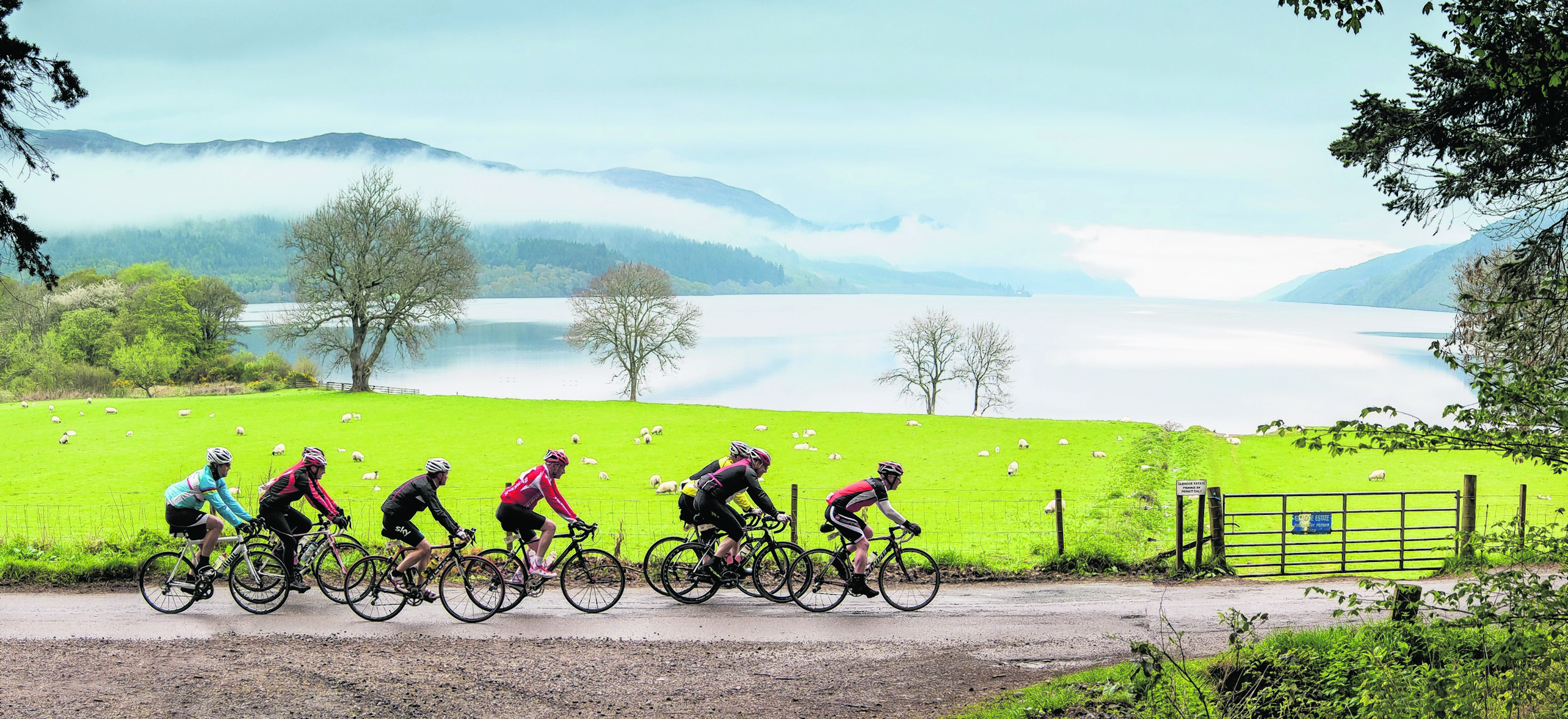A major cycling event in the Highlands generated more than £740,000 into the north economy, an independent assessment has found.
The second Etape Loch Ness was held on April 27, with 3,328 riders setting off from Inverness on a 66mile loop around Loch Ness.
The economic assessment carried out by Mackay Consultants of Inverness found that 68% of entrants came from outside the Highlands, a 20% increase on the previous year.
The total number of riders was up 166% on the inaugural event in 2014, with 92% saying they would take part again.
The event raised £228,000 for a range of good causes, with official charity Macmillan Cancer Support raising £170,000, more than the double the amount raised last year.
In total the event was found to have generated £743,000 in total for the north’s economy.
Event director Malcolm Sutherland said: “The report confirms what we have always believed – that events such as Etape Loch Ness can be a significant driver for the local economy.
“The statistics show that people are travelling to the area and when they are here, they are using local accommodation providers, cafes and restaurants, and other facilities.
“It is also pleasing to note that the 2015 Etape Loch Ness resulted in a significant economic benefit of £507,000 for Scotland in addition to the benefit to the Highlands. The whole of Scotland and not just the Highlands enjoys a spin off from the event.
Paul Bush, director of events at VisitScotland, said: “This year has been a very successful year for the Etape Loch Ness with record spectator and participant numbers.
“The etape brings great benefits to the Highlands, and indeed Scotland, generating economic impact and positioning the country as the perfect stage for mass participation events.”
The organisers have confirmed that the event will return in 2016, with entries due to open in late October.
The closed-road event starts and finishes in Inverness and follows the A82 to Fort Augustus before returning along the minor roads on the south side of the loch.
This includes the gruelling Glendoe climb out of Fort Augustus which involves a punishing 1,200ft of ascent in just 4.8 miles.
